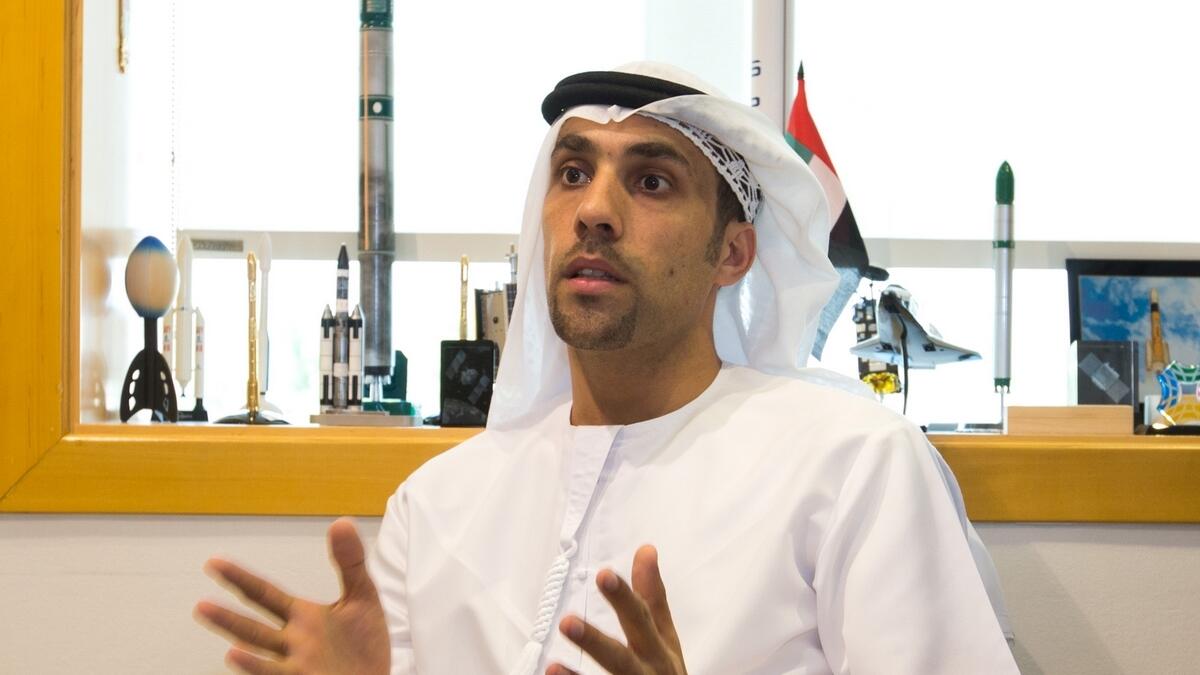Salem Al Marri, assistant director-general of the Mohammed Bin Rashid Space Centre (MBRSC).- KT file photo
UAE's progress in reaching space and further exploration will help the country advance its space industry.
Published: Mon 2 Jul 2018, 7:00 PM
Last updated: Mon 2 Jul 2018, 9:49 PM
The UAE aims to be an active contributor to the international space community and its missions, a top official at the UAE's space centre said ahead of the selection of the country's first astronaut corps.
Salem Al Marri, assistant director-general of the Mohammed Bin Rashid Space Centre (MBRSC), spoke exclusively with Khaleej Times on what kind of impact the UAE's space industry will have by sending the first Emirati to space in April next year.
He said the historic achievement will not only make the UAE an active player in the international space community, but, will also help create 'Emirati versions of Elon Musks and Jeff Bezos'.
"For me, human space flight is the pinnacle of space exploration. Getting a human into space and then keeping him alive, getting him to work and to interact is not easy and that's why every country doesn't do that and why every country doesn't have astronauts. I think, for us, getting to that level sends a clear message that the country has a long-term commitment to space and its exploration objective," he said.
"The objective of the UAE National Space Programme is to build human capabilities and knowledge, and to focus on peaceful exploration. It also sends a message that the UAE is an active player in space flight and exploration and that we are doing this as part our global citizen role."
Al Marri hoped that the Emirati children will be inspired by the historic move the UAE will achieve in April next year, when it sends its first astronaut into space.
"If we are able to inspire tens of thousands of 10-year-olds to think about technology in space and research, what are those children going to come up with when they are 30 or 40? Going back to the Apollo days, in the 1960s during the moon landing, a lot of innovators whom we see in the US today - Jeff Bezos and Elon Musk are two of them - go back to when Neil Armstrong landed on the moon and that is what inspired them," he said.
"We would hope that looking forward 10, 20, or 30 years later, we have our own Jeff Bezos and Elon Musks who are developing industries, those related to space and others as well. And they can use the first Emirati going to space memory and knowledge as inspiration. I think that's important."
He said the UAE's progress in reaching space and further exploration will help the country advance its space industry, which will also "indirectly boost the economy".
"Every dollar that you spend on space will bring you a return of three, four or five dollars, whatever it may be. But, it's not necessary that it's a direct return, it could be an indirect return. The objective here is not to make money or to necessarily support the economy directly, it's more of building knowledge and capabilities and being an active player in space exploration," he said.
"Along with that, there are research entities that get developed in universities, a lot of joint work that happens and exchange of knowledge, science and researchers from this region to the US and vice versa. A lot of such knowledge generates capabilities and then comes back into the economy indirectly - for example, businesses opening, spin-offs coming out, technologies being developed. And, generally, you have a society that's based on knowledge, capabilities and individuals who are highly educated and can contribute back to the country and its economy in many different ways. That's what we see happening with space and innovation."
sarwat@khaleejtimes.com












